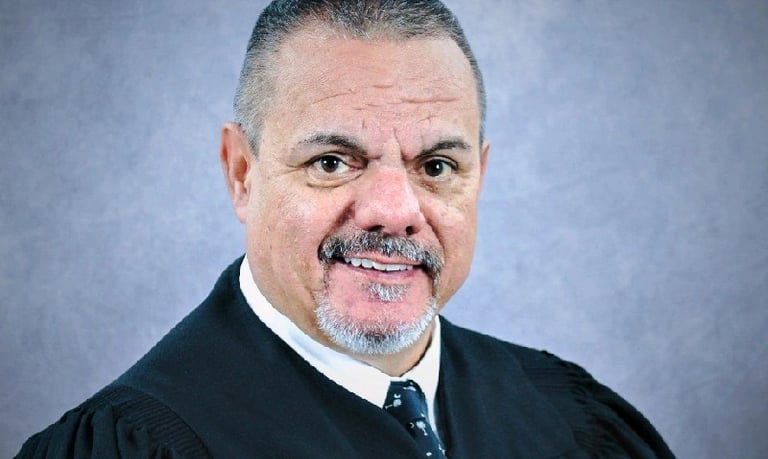Probate Judge Danny Singleton's Improper Letter and Influence In the Court of Appeals on Case of Doyle E. Pierce Estate
OCONEE PROBATE COURT


The South Carolina Court of Appeals responded by rejecting Judge Singleton's request, firmly stating that a probate judge does not and cannot make decisions in the appellate process.
In a striking demonstration of judicial overreach and apparent bias, Judge Danny Singleton of the Oconee County Probate Court sent a letter to the South Carolina Court of Appeals on April 4, 2024. This correspondence has raised significant concerns about his impartiality and the integrity of the judicial process in the probate case involving the estate of Doyle Elton Pierce. There are two pending appeals in the South Carolina Court of Appeals. The first appeal was filed in 2021 regarding the validity of the will of the deceased Doyle Elton Pierce, which was invalidated by now-suspended Judge Kenneth E. Johns. The second appeal concerns a forced settlement agreement that Judge Danny Singleton coerced, fully aware that an appeal was pending. This second appeal centers on the illegalities of the order and the distribution of estate assets while the appeal regarding the validity of the will is still pending.
The Letter and Its Implications
Judge Singleton's letter to the Court of Appeals advocated for the expedited handling or consolidation of these two separate appeals related to the Pierce estate. This recommendation, purportedly due to "extraordinary circumstances," represents an unusual and inappropriate intervention by a trial judge in the appellate process. Such an action undermines the principles of judicial propriety and impartiality, raising serious questions about the judge's conduct and motivations.
Rejection by the Court of Appeals
The South Carolina Court of Appeals responded by rejecting Judge Singleton's request, firmly stating that a probate judge does not and cannot make decisions in the appellate process. The appellate court emphasized the importance of maintaining judicial boundaries and preserving the integrity of the appeals process, underscoring that it is the role of the appellate court, not the probate judge, to manage and adjudicate appeals.
Conflation of Distinct Legal Issues
The two appeals in question address fundamentally different legal matters. The first appeal concerns the authenticity and enforceability of Doyle Elton Pierce's will, a probate issue rooted in testamentary intent and the proper execution of the will according to statutory requirements. The second appeal deals with the distribution of estate assets under intestate succession laws, which apply only if no valid will exists.
By suggesting that these appeals be expedited or merged, Judge Singleton ignores the distinct legal questions they present. Each appeal warrants independent consideration to ensure a thorough and fair adjudication. Merging these appeals would blur the lines between separate legal issues, potentially leading to the misapplication of the law and disadvantaging the parties involved.
Overreach and Bias
Judge Singleton's proactive attempt to influence the appellate process raises serious questions about his impartiality. Such direct communication with the appellate court is highly unusual and inappropriate, as it intrudes upon the appellate court's responsibility to independently evaluate each case. This overreach suggests a personal investment in the outcome of the appeals, which undermines the integrity of the judicial process.
Ethical Boundaries and Impartiality
Judges are expected to maintain impartiality and avoid actions that could be construed as attempting to influence higher courts. By advising the Court of Appeals to expedite or consolidate the appeals, Judge Singleton breached the ethical boundaries that separate the distinct jurisdictions of trial and appellate courts. This conduct poses a significant threat to the fairness of the appellate process. Judicial ethics require that judges refrain from any actions that could be perceived as exerting undue influence over appellate judges. Judge Singleton's actions compromise the independence of the appellate court and suggest an improper exertion of influence.
Potential Conflict of Interest
Judge Singleton's refusal to recuse himself from the case despite multiple requests further exacerbates concerns about his impartiality. This persistent refusal suggests a potential conflict of interest or, at the very least, the appearance of one. Such actions erode public confidence in the judicial system and compromise the fundamental principles of a fair trial. The judge's vested interest in the outcome of his own orders being appealed further underscores the need for recusal to maintain the integrity of the judicial process.
The Necessity for Change of Venue
Given these serious concerns, there is a compelling case for changing the venue of the probate proceedings. Transferring the case to Anderson County would help ensure that the parties receive a fair and impartial hearing, free from the undue influence of Judge Singleton. This move is essential to restoring the integrity of the judicial process and safeguarding the due process rights of all involved. An impartial venue is crucial to prevent any appearance of bias or influence that could compromise the fairness of the proceedings.
Conclusion
Judge Danny Singleton's improper communication with the South Carolina Court of Appeals represents a significant breach of judicial ethics and a clear example of overreach. His actions have compromised the fairness of the appellate process and raised serious questions about his impartiality. The rejection of his request by the Court of Appeals further highlights the impropriety of his actions. To ensure a fair trial and maintain public confidence in the judicial system, it is imperative that the case be transferred to a different venue. Such a change would help eliminate any reasonable concerns regarding bias and protect the due process rights of all parties involved in the probate case of Doyle Elton Pierce. Judge Singleton’s attempt to influence an appellate decision on his own order further underscores the need for this essential step. The judicial system must remain above reproach, and transferring the venue is a necessary action to uphold the principles of fairness and justice.
